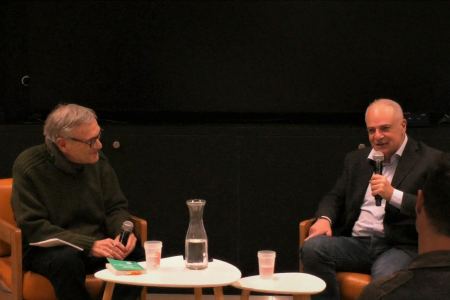 Conference
Conference
12/15/2022 - 06:30 PM 08:30 PM
Pierre Hazan
We were pleased to welcome Pierre Hazan, author of the book Négocier avec le diable. La médiation dans les conflits armés for a conference and debate on Thursday December 15th, 2022, 18:30, at MSF (34 avenue Jean Jaurès, 75019 Paris). The conference was livestreamed and translated simultaneously to English.
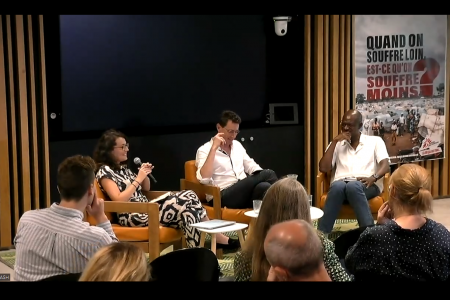 Conference
Conference
06/28/2022 - 06:30 PM 08:30 PM
Myfanwy James
Conference and debate, June 28th, 2022, from 18:30 to 20:30 (Paris time), MSF (salle du premier, 14-34 avenue Jean Jaurès, 75019 Paris). The conference was livestreamed and translated simultaneously to English.
 Analysis
Analysis
02/20/2015
Jean-Hervé Bradol
How to intervene with the civilian populations in the middle of the war in Syria? Jean-Hervé Bradol, director of studies at Crash and former project coordinator for the northern part of Syria in 2013, testifies about the negotiations carried out in Syria in cities taken by groups affiliated to Al Qaeda or the Islamic State. This article was published on the Mediapart website on February 1, 2015.
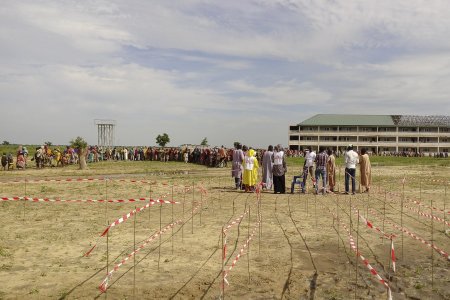 Shaista Aziz/MSF
Interview
Shaista Aziz/MSF
Interview
07/01/2019
Isabelle Defourny
Elba Rahmouni
In 2016, the Operations Department commissioned a critical review of the operations carried out between 2015 and 2016 in Borno State by MSF France in the north east of Nigeria. In response, and with the help of Epicentre, Judith Soussan and Fabrice Weissman from CRASH produced a detailed historical account of the analyses made of the situation by the teams, capital and headquarters at the time, as well as the objectives they set themselves, the actions they undertook, the obstacles they encountered and the results they achieved. As part of this project, some of the directors and operations managers who had been involved in these operations took a retrospective look at their own practices: were they late in responding to the catastrophic situation in the IDP camps in rural areas and on the outskirts of Maiduguri, the capital of Borno State, in 2016 and, if so, why? What conclusions can be drawn a posteriori about the operational choices made and the effectiveness of MSF intervention strategies? And, to take things a step further, what does this experience teach us about how MSF functions and how our teams work? Interview with Isabelle Defourny, Operations Director at MSF-OCP. By Elba Rahmouni.
 Analysis
Analysis
07/01/2008
Fabrice Weissman
With 13,000 humanitarian workers and a hundred relief agencies, Darfur hosts the largest humanitarian operation in the world. The aid apparatus started its full deployment in mid-2004 in a context of acutely high mortality among internally displaced persons (IDPs) gathered in camps and civilians remaining in rural areas.
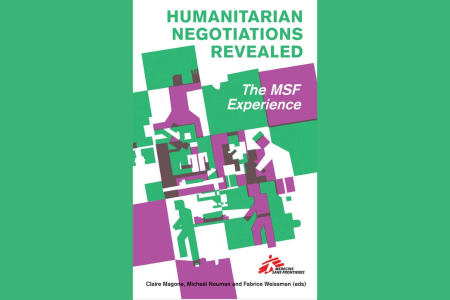 Book
Book
02/17/2012
Claire Magone
Michaël Neuman
Fabrice Weissman
From international NGOs to UN agencies, from donors to observers of humanitarianism, opinion is unanimous: in a context of the alleged ‘clash of civilisations’, our ‘humanitarian space’ is shrinking.
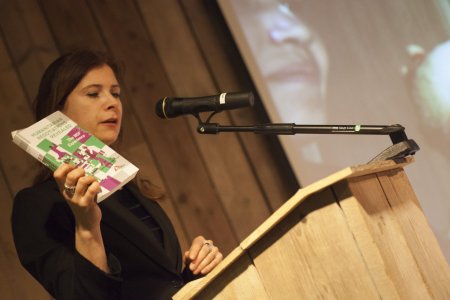 Olga Victorie
Video
Olga Victorie
Video
01/30/2012
Michaël Neuman
On January 26, the Brookings-LSE Project on Internal Displacement and Doctors Without Borders/Médecins Sans Frontières (MSF) hosted a discussion on the compromises and negotiations the humanitarian aid community must contend with during crisis situations.
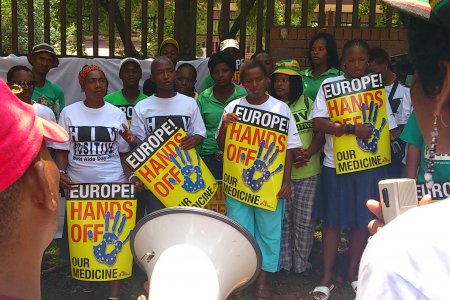 Borrie Lagrange
News in brief
Borrie Lagrange
News in brief
10/17/2011
Claire Magone
Michaël Neuman
Fabrice Weissman
From international NGOs to UN agencies, from donors to observers of humanitarianism, opinion is unanimous: in a context of the alleged ‘clash of civilisations', our ‘humanitarian space' is shrinking.
 Conference
Conference





